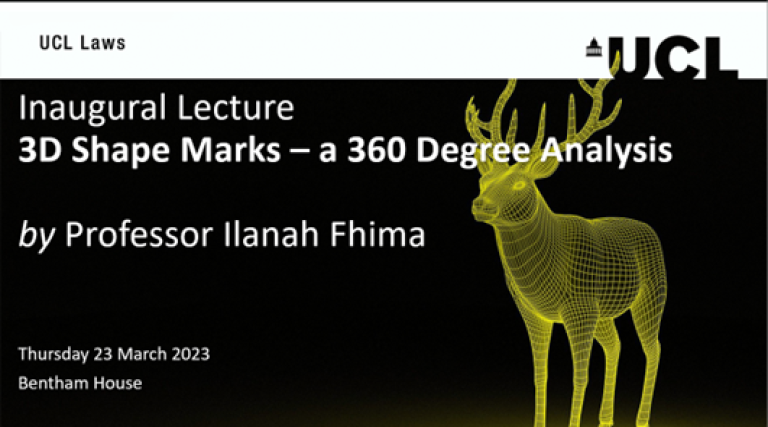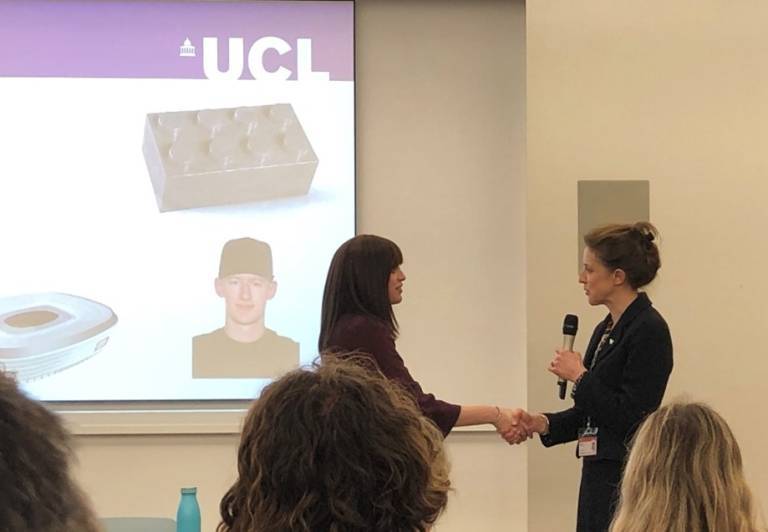Professor Ilanah Fhima delivers inaugural lecture
5 April 2023
Professor Fhima delivered the lecture on ‘3D Shape Marks – A 360 Degree Analysis', as part of her official inauguration as Professor of Intellectual Property Law.

On Thursday 23 March, over 100 family, friends, Faculty members and colleagues from the intellectual property academia and practice gathered in Bentham House to listen to Professor Ilanah Fhima’s Inaugural Lecture and to celebrate her official inauguration, with over 200 more registered to watch the live streaming of the event online. The event was chaired by the Rt. Hon. Lord Justice Arnold, Lord Justice of Appeal and a Distinguished Judicial Visitor at UCL Laws, who was introduced by Professor Eloise Scotford, Dean of UCL Laws.

Professor Fhima’s Inaugural Lecture was entitled ‘3D Shape Marks – A 360 Degree Analysis. It reported the results of an empirical study of all 3D shape marks filed at the European Union Intellectual Property Office (EUIPO) during a recent five-year period. The research findings debunked the general consensus is that it is almost impossible to register a shape mark as an EU trade mark (EUTM), and that such marks are only registered if proof of existing consumer recognition as a mark (acquired distinctiveness) is provided. Instead, Professor Fhima’s research demonstrates that there are a substantial number of shape marks on the EU Register which have been accepted as being inherently distinctive, including mark which are ‘pure’ product shapes (i.e. no claim to colour or addition of other distinguishing indicia). Moreover, acquired distinctiveness plays virtually no role in the registration of shape marks at the EUIPO.
The Lecture further reported on the types of shape marks are being applied for and registered, and for which classes of goods and services, finding that the outcome of shape mark applications turn on the mark’s inherent distinctiveness, rather than functionality, despite the fact that CJEU jurisprudence identifies functionality, not distinctiveness, as the key safeguard against registration of features of shape that have the potential to hinder fair competition. More of Professor Fhima’s research findings will be contained in a corresponding article which will be published in UCL Laws’ Current Legal Problems annual volume for 2023.
Find out more about '3D Shape Marks – A 360 Degree Analysis'.
Photo credit: James Nurton
 Close
Close

